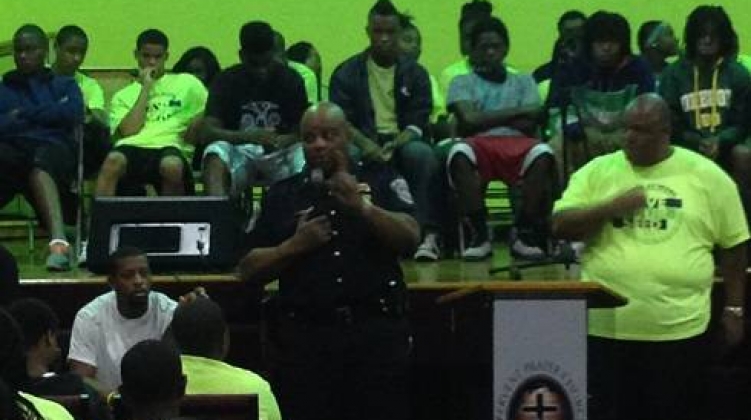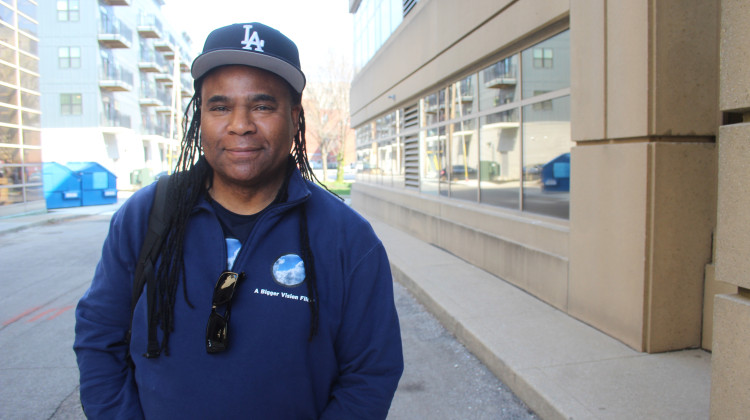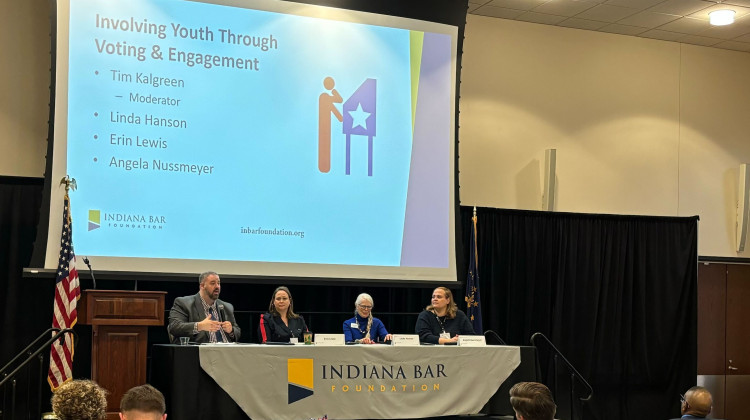When IMPD Chief Rick Hite was hired to run the department, he told Mayor Greg Ballard that one of his main priorities was creating summer jobs for teens.
Hite worked when he was in high school, and says that experience was the launching pad for his career.
"You can be a leader working a summer job," said Hite. "You can actually make legitimate money. You don't have to go out and be involved in the street corner pharmaceutical business or the drug hustle."
"All money is not good money. You learn that. You learn how to be a team player," he said. "There are so many things that you learn that become part of your life, much like myself. I started with a summer job that prepared me for this job."
This year, the city and Department of Public Safety raised $35,500 to pay for teens to work once school was out.
Six service providers received the money, most of which was raised during a first ever 5K run held, downtown, last month.
Hite says investing in putting kids to work now is a way to prevent paying for their incarceration down the road.
"It takes anywhere from $300 to $400 a day to house one juvenile in a juvenile facility," he said. "Imagine if we put that money in the front end with this type of (summer) programming rather than the back end, incarceration."
Deshaun Mosley, 14, is a young man benefitting from the summer jobs program. For the past five weeks he’s worked with Clean for Green picking up trash and sticks around the city and gets paid $25 every Friday.
He says the work taught him lessons he wouldn’t have learned otherwise.
"I learned how to give back the community. They said it was important because it's where you live. You want to help out your community," said Mosley. "I feel like I took a lot from it and learned about the job process."
Mosley says another benefit of the work is that by the end of the day most kids are too tired to go out and cause problems in the streets.
And he says the streets are so dangerous that he doesn’t even want to leave his house.
"I'm seeing violence, people just going up randomly and punching people for no reason," he said. "It's crazy."
But, by working through Clean for Green, Mosley says teens like him establish personal relationships and are choosing to unite and move away from potentially dangerous situations.
"Some people don't get along and it was good experience to work with partners," he said. "We accomplished how to do team work and how to give back to your community."
Mosley was one of about 400 kids who participated in Clean for Green this summer, with another 200 on a waiting list.
But, the program is shutting down next week because it is out of money.
Pastor Wayne Moore says the kids rely on the money they earn through the program to live and help their families survive.
"A lot of our children have hygiene problems, that goes to show you what type of children we are dealing with and what the household is in need of," he said. "People say 'are these at risk kids?' They are because they don't have what the average kid has, the average kid."
"Some of these resources that they make today will literally go back into the household. Some kids are going to eat this weekend because of the resources (money) they make today. It's that bad."
It costs about $12,500 a week to run the program.
Far East Side Action Coalition President Pastor James Jackson says raising that kind of money has been a challenge.
But, he hopes more people will step up to contribute because the work gives young people more than just a few bucks, it provides optimism for the future.
"To know that there is group of people out here who cares what happens to them, it brings hope," said Jackson. "We don't start until 8 a.m. but the kids are getting here at 7 a.m. They are all here by 8 a.m. and that lets me know that they appreciate it and they do have some potential."
With the program coming to an end, Pastor Moore hopes the young people use their potential and combine it with what they learned during Clean and Green in their everyday lives, especially this weekend during the Indiana Black Expo Summer Celebration events.
"The thing that I would like to see is that none of them become a statistic in the next 48 hours and we get back to Monday morning without a 16-, 17-, 18-year-old kid becoming a homicide victim or shooting somebody," he said. "That's my greatest fear today, when we dismiss these children, that they will all be alive, they won't have handcuffs on them on Monday morning."
Moore and the rest of the organizers aren’t waiting until Monday to get started on raising money for next year’s summer jobs program.
They say that process is already underway.
 DONATE
DONATE







 View More Programs
View More Programs




 Support WFYI. We can't do it without you.
Support WFYI. We can't do it without you.